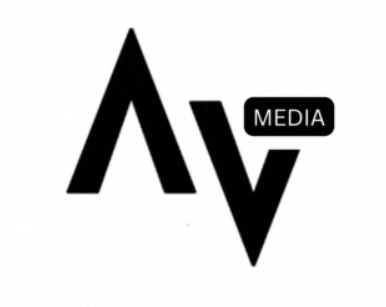In the ever-evolving landscape of SEO, backlinks remain a cornerstone for achieving top search engine rankings and driving organic traffic. High-quality links serve as a vote of confidence from other websites, indicating valuable and trustworthy content. But simply acquiring links isn’t enough. Strategic link building is essential to propel your website towards SEO dominance. This comprehensive guide equips you with the knowledge and strategies to cultivate a robust link profile, attracting high-quality links that will supercharge your website’s growth.
The Power of Quality Links: Understanding the Impact on SEO
Before diving into link-building strategies, let’s delve into the power quality links wield in the SEO realm:
- Search Engine Ranking Boost: Search engines like Google consider backlinks a significant ranking factor. Websites with a strong backlink profile, particularly from authoritative sources, are deemed more relevant and trustworthy, earning a coveted spot on the first page of search results.
- Increased Organic Traffic: Quality backlinks act as a pathway to your website. When other websites link to your content, they’re essentially sending targeted visitors your way, leading to a surge in organic traffic.
- Enhanced Brand Authority: Backlinks from reputable websites elevate your brand image and establish you as a thought leader within your industry. This fosters trust and credibility with potential customers.
- Improved Website Credibility: Backlinks signal to search engines that your content is valuable and worth referencing. This enhances your website’s overall credibility and trustworthiness.
Identifying High-Quality Links: Not All Links Are Created Equal
Not all backlinks are created equal. Here’s how to distinguish high-quality links that truly benefit your SEO efforts:
- Relevance: The linking website should be thematically relevant to your own. Links from websites in your niche or industry carry more weight and relevance in the eyes of search engines.
- Authority: The website linking to you should have a high domain authority (DA). DA is a metric that indicates a website’s overall authority and influence within a specific niche. Links from high-authority websites pass on more SEO value.
- Link Placement: Links placed within the main content body of a webpage hold more value compared to links found in footers, sidebars, or comments sections.
- Link Diversity: A natural backlink profile should exhibit diversity in terms of linking domains. Avoid acquiring links solely from a handful of websites.
Building a Robust Link Profile: Effective Strategies for Sustainable Growth
Now that you understand the power of quality links, let’s explore effective strategies to build a robust link profile:
- Create High-Quality, Link-Worthy Content: The foundation of any successful link-building strategy lies in creating exceptional content that deserves to be linked to. Focus on in-depth, informative content that solves user problems, offers unique insights, or provides valuable resources.
- Guest Blogging: Contribute guest articles to relevant websites within your niche. This allows you to showcase your expertise, reach a wider audience, and acquire valuable backlinks to your website.
- Broken Link Building: Identify broken links on relevant websites and create content that serves as a better, more up-to-date replacement. Contact the website owner and suggest your content as a replacement, potentially earning a backlink in the process.
- HARO (Help A Reporter Out): HARO is a platform that connects journalists with sources for their stories. Respond to relevant HARO queries with your expertise and secure backlinks in published articles.
- Infographics and Visual Content: Create high-quality infographics and visual content that are visually appealing and informative. Other websites will often embed these infographics with a backlink to your website.
- Directories and Online Listings: Submit your website to relevant online directories and business listings. While these links may not carry the most weight, they can still contribute to a healthy backlink profile and improve brand visibility.
- Social Media Promotion: Promote your content on social media platforms to increase its reach and visibility. This can indirectly lead to backlinks as other websites discover and share your valuable content.
Ethical Link Building: Avoiding Penalties and Maintaining Trust
While acquiring backlinks is crucial, it’s essential to prioritize ethical link building practices. Search engines penalize websites that engage in manipulative or spammy tactics. Here’s what to avoid:
- Buying Links: Buying links is a clear violation of search engine guidelines and can result in website penalties.
- Link Exchanges: While not inherently bad, excessive link exchanges can appear unnatural and negatively impact your SEO.
- Link Baiting: Creating content solely to attract backlinks through sensationalism or misleading tactics will ultimately backfire.
- Directory Spamming: Submitting your website to irrelevant directories does little for your SEO and can even harm your reputation.
Building Relationships: The Power of Collaboration
Link building isn’t just about acquiring links; it’s about fostering mutually beneficial relationships. Here’s how collaboration can enhance your link-building efforts:
- Collaborate with Industry Influencers: Partner with influencers within your niche to co-create content, conduct interviews, or participate in joint webinars. This allows you to tap into their audience and potentially earn backlinks on their websites.
- Sponsor Industry Events: Sponsor relevant industry events to increase brand awareness and build relationships with potential partners. Sponsorships can sometimes lead to backlinks on event websites or publications.
- Offer Valuable Resources: Create valuable resources like white papers, case studies, or industry reports that other websites might find helpful enough to link to.
Measuring Link-Building Success: Tracking Progress and Making Adjustments
Effective link building requires continuous monitoring and analysis. Here’s how to track your progress:
- Backlink Monitoring Tools: Utilize backlink monitoring tools to track the number of backlinks you acquire, their source domains, and their DA scores. This allows you to analyze the quality and effectiveness of your link-building efforts.
- Organic Traffic Analysis: Monitor organic traffic changes after implementing your link-building strategies. Increased organic traffic is a positive indicator of the effectiveness of your link-building efforts.
- Search Engine Ranking Tracking: Track your website’s ranking for relevant keywords over time. While backlinks aren’t the only ranking factor, a well-executed link-building strategy should lead to improved rankings for targeted keywords.
Embrace the Long-Term Approach: Sustainability is Key
Link building is a marathon, not a sprint. High-quality links are more likely to be sustainable in the long run. Focus on creating valuable content, building relationships, and consistently implementing ethical link-building strategies. By staying committed and patient, you’ll cultivate a robust backlink profile that propels your website towards SEO dominance.
Conclusion
With the knowledge and strategies outlined in this comprehensive guide, you’re well-equipped to embark on your link-building journey. By prioritizing ethical practices, creating valuable content, and fostering relationships, you’ll cultivate a robust backlink profile that supercharges your website’s SEO performance and drives organic traffic growth for years to come.





















